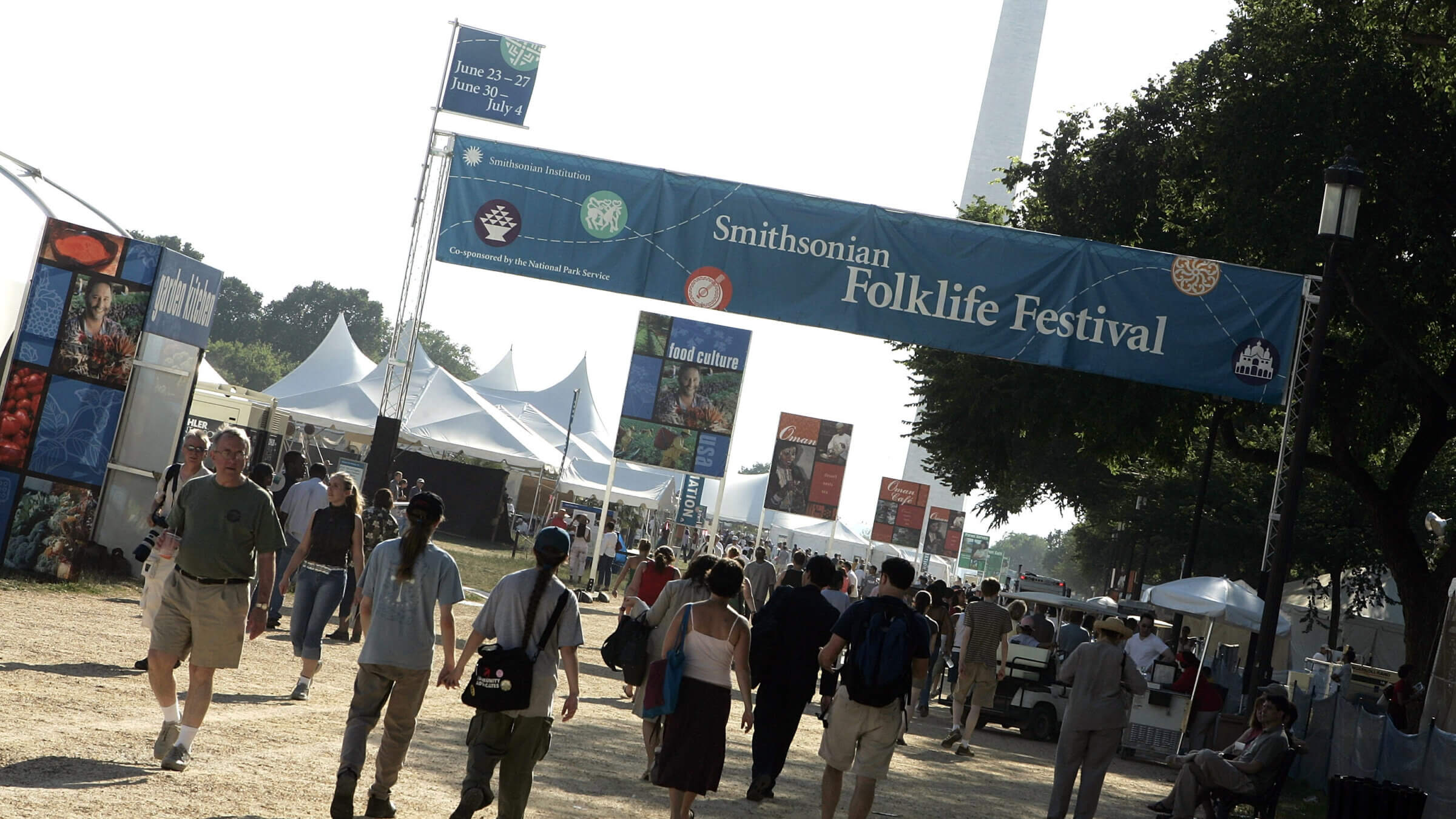This year’s Smithsonian Folklife Festival explores the importance of Yiddishkeit in American culture
One of this year’s themes is religion in the US. Pickle-making workshops and Yiddish folksongs feature prominently

The Smithsonian Folklife Festival takes place annually on the National Mall. Courtesy of Getty Images
I grew up in D.C., which means that every summer, I’d go to the Smithsonian Folklife Festival. Set up on the National Mall, the annual festival highlights the crafts, food and music of several cultures. One year, a beautiful — and impressively large — Bhutanese temple was erected on the grounds. Another, I enjoyed Appalachian bluegrass.
This year, however, visitors will be able to enjoy a blintz-making demonstration, a pickling workshop and Yiddish folksongs.
One of this year’s themes is American religion. (The others are the Ozarks and Kazakh traditions.) “Creative Encounters: Living Religions in the U.S.” will highlight the ways in which religion sparks creative endeavors, whether handicrafts, music, food or storytelling. And Judaism — specifically, it seems, Yiddishkeit — is featured.
The YIVO Institute for Jewish Research is partnering with the Smithsonian to bring Jewish traditions to the National Mall. There will be singalong and listening workshops of Yiddish folk songs from the YIVO collections. There will also be food workshops with Jeffrey Yoskowitz and Liz Alpern of Gefilteria, a creative venture reimagining and rejuvenating Yiddish deli cuisine — including, of course, the much-reviled gefilte fish. (Gefilte fish will not, unfortunately, be making an appearance on the National Mall.)
At first glance, it might seem exoticizing that the Folklife Festival has chosen to include Jews as a culture to highlight this year. Often the focus is on farther-flung groups from foreign countries, cultures that most visitors are unlikely to have encountered. But the festival is somewhat eccentric in what it qualifies as “folklife” — one year, NASA was featured, which is certainly not a folk tradition by most people’s definitions. Another year spotlighted “New Hampshire.”
This year, in addition to Yiddish folksongs, there will also be Mennonite hymns, gospel singers, and a Sufi singer as well as a Humanist sound bath. In addition to pickles and blintzes, there’s a pierogi workshop about Slovak Christmas traditions. There will be hula and chanting from Hawaii, connected to the tradition of pounding taro root, and Japanese dancing for the Obon festival, a celebration of the combination of Buddhist and ancestral Japanese traditions.
It feels refreshing that an educational introduction to Jewry is, for once, not focused on the Holocaust, shtetls, antisemitism or even Israel, and instead celebrates joyful traditions like music and food. Jewish life is, after all, still evolving — the festival is focused on living traditions — and not defined by its past. Highlighting current Yiddish musicians who play with and expand music traditions, as well as organizations like Gefilteria, which reclaims and revitalizes Ashkenazi food histories, reminds people that Jewish culture is a vibrant part of our present day society.
Presenting Jewish tradition divorced from a history of persecution does risk isolating Yiddish music and food from its real history. And the festival focuses on specifically Ashkenazi Judaism and Yiddishkeit, leaving out the many Mizrahi communities that also make up the fabric of the country’s Jewish life.
Still, the festival could never include every tradition in the U.S., and its message is clear: All of these varied religions and practices are an essential part of the tapestry of American life. It’s a point that feels especially vital given the growing profile of Christian nationalism. (Even the Christian traditions included emphasize the diversity within Christianity, such as Black gospel music.)
The fact that, according to a Pew study, nearly 40% of Americans have never met anyone Jewish — and even fewer have met a Hindu or Muslim — makes these events all the more vital; the National Mall is a massive tourist destination, especially around July 4th, when visitors flock to the nation’s capitol to celebrate the birth of the country.
The symbolism is powerful: Our country’s founding was predicated on religious freedom and diversity. And here it is.
The Smithsonian Folklife Festival runs from June 29 – July 4, and July 6 – 9.





















